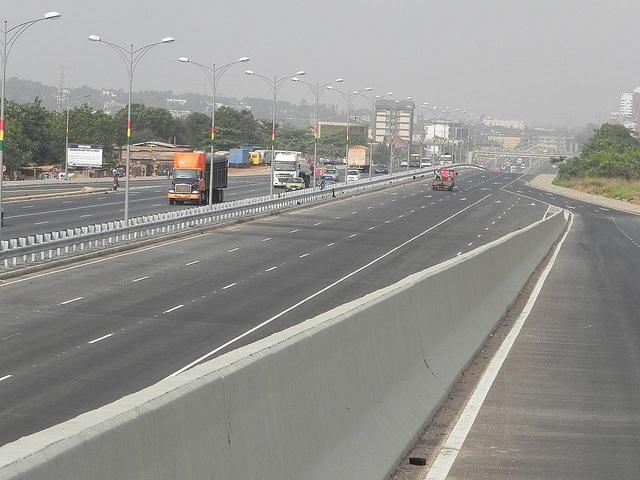The construction of the Lagos-Abidjan Highway has the capacity to unlock 85 per cent of trade within the ECOWAS sub-region according to the African Development Bank (AfDB).
The Highway which is 1,028-km project will span across different countries which includes Cote d’Ivoire, Ghana, Togo, Benin and Nigeria -and traverse the economic capitals of the five coastal countries, starting from Abidjan and ending in Lagos, while equally straddling eight border crossings.
Lamin Barrow the Director-General of AfDB who represented Akinwumi Adesina the AfDB President appearing on Tuesday as a panelist at a one-day webinar to showcase the investment opportunities from the Federal Government of Nigeria’s reforms and privatization activities, said that while the Federal Government had spearheaded various reforms in the banking sector that enhanced the resilience of the financial system, there was a need to stay the course in completing the bold reforms initiated to restructure the energy sector.
Nigeria’s infrastructure deficit is one of the main constraints to industrial development and national competitiveness with estimates cost of 4% of yearly of Gross Domestic Product growth on Nigeria’s Infrastructure.
Industry watchers say the corridor carries over 75 per cent of the trade volume in West Africa, stressing the need to sustain the free flow of persons, trade and improve the economies of the corridor states.
According to them the corridor has a huge capacity to create wealth in economic value chains at the African Continental Free Trade Area Agreement.
Adesina says that Given the huge amount needed to build it, about $100bn annually for the next 30 years is needed stressing the need of creating an enabling environment for public-private partnerships to close Nigeria’s infrastructure gap.
ALSO READ: Canadian-Based Firm Touts Massive Oil Find In Namibia
Addressing the Public-Private partnerships was one of the main reasons why the AfDB was supporting the Nigerian government’s efforts in addressing the infrastructure deficit through the development of both national and regional infrastructure.
In the energy sector, he said the AfBD’s support would help improve access and reliability of electricity supply by attracting private sector participation.
According to him, the $256m and $200m financing respectively for the Nigeria Transmission Expansion Project (NTEP-1) and the Nigerian Electrification Project (NEP) would contribute to strengthening the transmission network and promoting off-grid solutions.
In the transport sector, too he explained that the bank’s $430m support for the Enugu-Bamenda Road, linking Nigeria and Cameroon, was expected to be completed this year, and would provide a gateway for enhanced trade between West Africa and Central Africa.
He added, “We are working closely with the ECOWAS Commission and the concerned countries to finalize the feasibility studies for the landmark Abidjan-Lagos Highway.
“We expect the construction of the corridor to commence next year. This highway will link 85 per cent of the trade volumes in ECOWAS.
“We also supporting the rollout of new flagship programs such as the Special Agro-Industrial Processing Zones (SAPZs) and Nigeria Innovation Program (Digital Nigeria) to unleash the potential of the economy.
According to him These will be complemented by enhanced policy dialogue with a view to consolidating Nigeria’s strategic position as the bulwark for the regional economy.
Attracting private sector participation is critical for mobilizing investment resources and ensuring sustainable operation and maintenance of public infrastructure assets.
To this end, the AfDB president said governments in Africa should put in place adequate regulatory frameworks to treat infrastructure as an asset class and view privatization as an opportunity to optimize underperforming assets.
“Privatization and commercialization of public enterprises should therefore be more than just a transaction but an institutionalized mechanism with a long-term perspective.
“They represent a new way of life/doing business to accelerate the achievement of the SDGs, an inclusive society, and as tools for building dynamic and competitive economies,” he added.
Working with like-minded development partners and financial institutions, Adesina said the AfDB would deploy a suite of instruments, including direct lending, equity participation, de-risking facilities, and the platform of the Africa Investment Forum platform to support the Nigerian government and other key stakeholders to implement bold and innovative approaches to drive private sector participation and investments in the economy.
This is the biggest road project in Africa.
